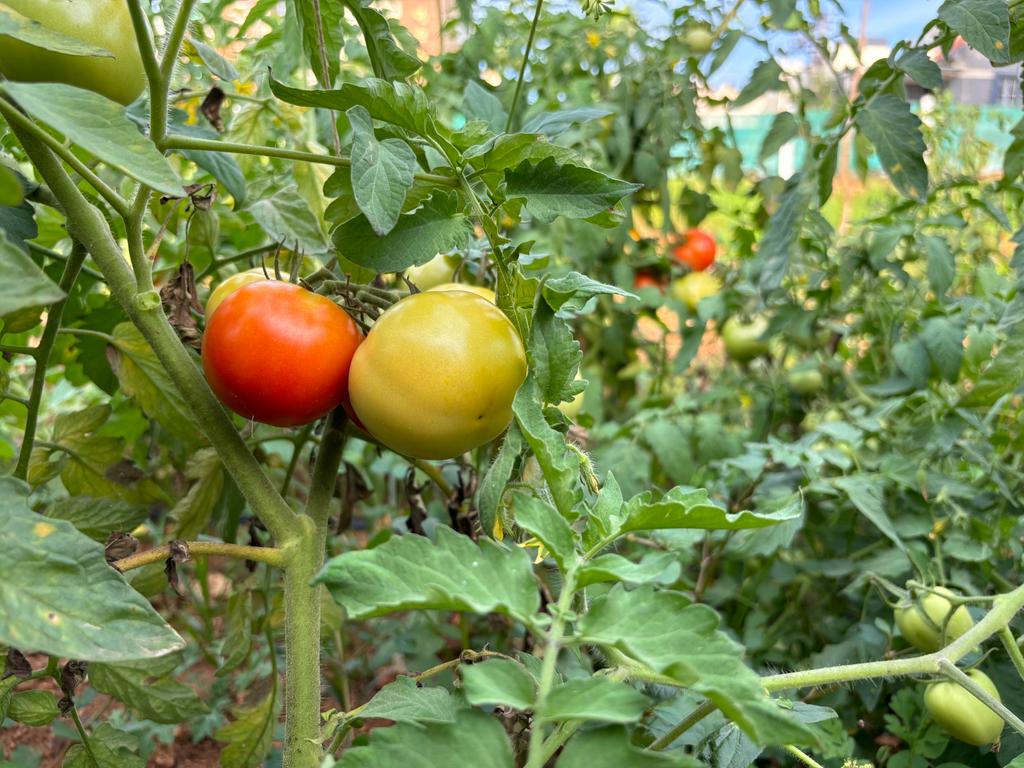Organic Vegetable Cultivation
Mission: To foster a culture of organic farming that ensures nutritious produce, protects the environment, and creates economic opportunities for rural farmers. We are committed to improving the well-being of rural communities and the overall food system through ethical and sustainable agricultural practices.
Purpose
Our vision is of thriving rural communities where organic vegetable cultivation is a driving force behind sustainable agriculture. We aspire to create a future where every rural household has access to fresh, organic vegetables, contributing to improved nutrition and well-being.
We see a society where farmers are stewards of the land, practicing responsible agriculture that preserves the environment and strengthens the local economy. Our vision is to make organic vegetable cultivation a symbol of health, sustainability, and prosperity in rural areas.
Steps to Implement Organic Vegetable Cultivation in Rural Areas:
- Assessment and Training:
- Conduct a comprehensive assessment of the local agricultural landscape to understand existing practices and challenges.
- Provide training and workshops for farmers on the principles and practices of organic farming, including composting, crop rotation, and pest management.
- Seed and Soil Quality Improvement:
- Assist farmers in acquiring organic and non-GMO seeds.
- Promote soil testing and soil health improvement measures to ensure optimal growing conditions.
- Certification and Compliance:
- Help farmers understand the requirements for organic certification and assist them in meeting these standards.
- Ensure compliance with organic regulations and standards throughout the cultivation process.
- Crop Diversification:
- Encourage farmers to diversify their crops to improve soil health, reduce pests, and provide a variety of produce for local consumption and markets.
- Water Management:
- Promote water conservation and efficient irrigation methods, such as drip irrigation.
- Educate farmers on rainwater harvesting and storage.

- Natural Pest and Disease Management:
- Implement integrated pest management strategies to minimize the use of synthetic pesticides.
- Introduce beneficial insects and natural remedies for pest and disease control.
- Community-Based Approach:
- Foster community involvement in organic farming initiatives, such as cooperative farming or community gardens.
- Share knowledge and resources among farmers to create a support network.
- Market Access:
- Assist in connecting rural farmers to organic markets, including local farmers’ markets, restaurants, and supermarkets.
- Support the creation of local cooperatives for improved market access.
- Environmental Stewardship:
- Promote agroforestry, contour farming, and the use of cover crops to enhance sustainability and prevent soil erosion.
- Research and Development:
- Invest in research and development to discover and promote region-specific organic cultivation practices.
- Adapt to emerging technologies and best practices.
- Education and Outreach:
- Conduct awareness programs to educate rural communities on the benefits of organic farming and sustainable agriculture.
- Create educational materials and workshops for schools and local organizations.
- Monitoring and Evaluation:
- Continuously monitor the progress of organic vegetable cultivation initiatives and assess their impact on the environment and the community.
- Adapt strategies based on ongoing evaluation.

